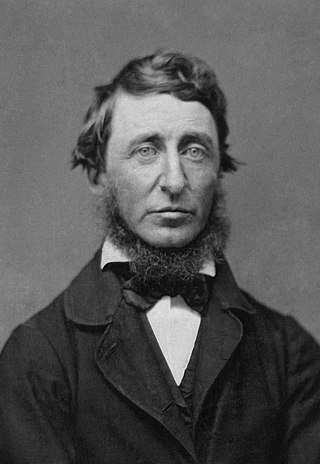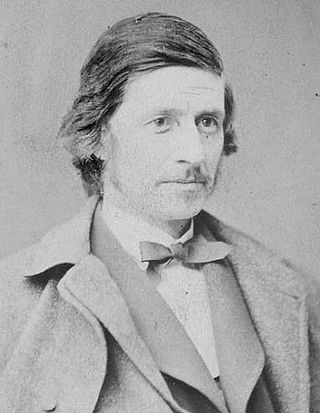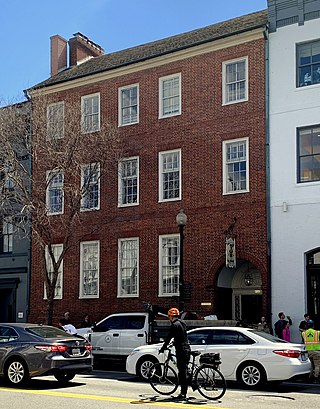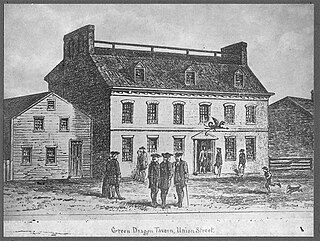
Henry David Thoreau was an American naturalist, essayist, poet, and philosopher. A leading transcendentalist, he is best known for his book Walden, a reflection upon simple living in natural surroundings, and his essay "Civil Disobedience", an argument for disobedience to an unjust state.

Concord is a town in Middlesex County, Massachusetts, in the United States. At the 2020 census, the town population was 18,491. The United States Census Bureau considers Concord part of Greater Boston. The town center is near where the confluence of the Sudbury and Assabet rivers forms the Concord River.

The Sons of Liberty was a loosely organized, clandestine, sometimes violent, political organization active in the Thirteen American Colonies founded to advance the rights of the colonists and to fight taxation by the British government. It played a major role in most colonies in battling the Stamp Act in 1765 and throughout the entire period of the American Revolution.

Joseph Warren, a Founding Father of the United States, was an American physician who was one of the most important figures in the Patriot movement in Boston during the early days of the American Revolution, eventually serving as President of the revolutionary Massachusetts Provincial Congress. Warren enlisted Paul Revere and William Dawes on April 18, 1775, to leave Boston and spread the alarm that the British garrison in Boston was setting out to raid the town of Concord and arrest rebel leaders John Hancock and Samuel Adams. Warren participated in the Battles of Lexington and Concord the following day, the opening engagements of the American Revolutionary War.

The Old Manse is a historic manse in Concord, Massachusetts, United States, notable for its literary associations. It is open to the public as a nonprofit museum owned and operated by the Trustees of Reservations. The house is located on Monument Street, with the Concord River just behind it. The property neighbors the North Bridge, a part of Minute Man National Historical Park.

Minute Man National Historical Park commemorates the opening battle in the American Revolutionary War. It also includes the Wayside, home in turn to three noted American authors. The National Historical Park is under the jurisdiction of the National Park Service and protects 970 acres (392.5 ha) in and around the Massachusetts towns of Lexington, Lincoln, and Concord.
The Historic Inns of Annapolis consist of three historically rich inns dating back to the end of the American Revolutionary War. The historical buildings, located in Annapolis, Maryland, include the Maryland Inn, Governor Calvert House, and the Robert Johnson House as well as the Treaty of Paris restaurant and the King of France Tavern, which are the on-site dining facilities. Managed by Remington Hotels, the hotel is located in the heart of the city of Annapolis, MD.

Franklin Benjamin Sanborn was an American journalist, teacher, author, reformer, and abolitionist. Sanborn was a social scientist, and a memorialist of American transcendentalism who wrote early biographies of many of the movement's key figures. He founded the American Social Science Association, in 1865, "to treat wisely the great social problems of the day". He was a member of the so-called Secret Six, or "Committee of Six", which funded or helped obtain funding for John Brown's Raid on Harpers Ferry; in fact he introduced Brown to the others.

The City Tavern Club is a private club in the Georgetown area of Washington, D.C., United States. It is housed in the City Tavern, one of the oldest buildings and the last remaining Federal-period tavern in the city.

The Green Dragon Tavern was a public house located on Union Street in Boston's North End. A popular meeting place for both the Freemasons and the Sons of Liberty, it was demolished in 1832.

The Wheeler-Minot Farmhouse, also known as the Thoreau Farm or the Henry David Thoreau Birthplace, is a historic house at 341 Virginia Road in Concord, Massachusetts, United States. It is significant as the birthplace of writer Henry David Thoreau. The house was listed on the National Register of Historic Places in 2004. It currently serves as a museum and is open to the public.

The Reuben Brown House is a colonial style house located in Concord, Massachusetts.

Battle Road, formerly known as the Old Concord Road and the Bay Road, is a historic road in Massachusetts, United States. It was formerly part of the main road connecting Lexington, Lincoln and Concord, three of the main towns involved in the American Revolutionary War. It was on Battle Road that thousands of colonial militia and British regulars fought during the redcoats' retreat from Concord to Boston on the morning and afternoon of April 19, 1775.

From July 1824 to September 1825, the French Marquis de Lafayette, the last surviving major general of the American Revolutionary War, made a tour of the 24 states in the United States. He was received by the populace with a hero's welcome at many stops, and many honors and monuments were presented to commemorate and memorialize the visit.

The "Henry Fite House", located on West Baltimore Street, between South Sharp and North Liberty Streets, in Baltimore, Maryland, was the meeting site of the Second Continental Congress from December 20, 1776, until February 22, 1777.
New London is currently an unincorporated community and former town in Campbell County, Virginia, United States. The site of the colonial community is eleven miles southwest of downtown Lynchburg, Virginia. In 1754, Bedford County was formed and New London was established as the county seat. Situated near the intersection of the Great Wagon Road and the Wilderness Road, the town was an important stopping point for settlers heading west.

Old Marlboro Road is a historic road and the name of a poem about the road by Henry David Thoreau, published in his work, Walking. Old Marlboro Road currently runs through Concord, Sudbury, and Maynard, Massachusetts, United States.

Hartwell Tavern is a historic American Revolutionary War site associated with the revolution's first battle, the 1775 battles of Lexington and Concord. It is located on North County Road, just off Battle Road in Lincoln, Massachusetts, and operated as a historic house museum by the National Park Service as part of the Minute Man National Historical Park. Built in 1733, in what was then Concord, it is staffed from Memorial Day (May) weekend to October by park rangers dressed in colonial attire who offer programs daily.

Historic Hotels of America is a program of the National Trust for Historic Preservation that was founded in 1989 with 32 charter members; the program accepts nominations and identifies hotels that have maintained their authenticity, sense of place, and architectural integrity. In 2015, the program included over 260 members in 44 states, including the District of Columbia, Puerto Rico, and the U.S. Virgin Islands. In 2022, the program includes 273 hotels. This article lists current and former member hotels.























